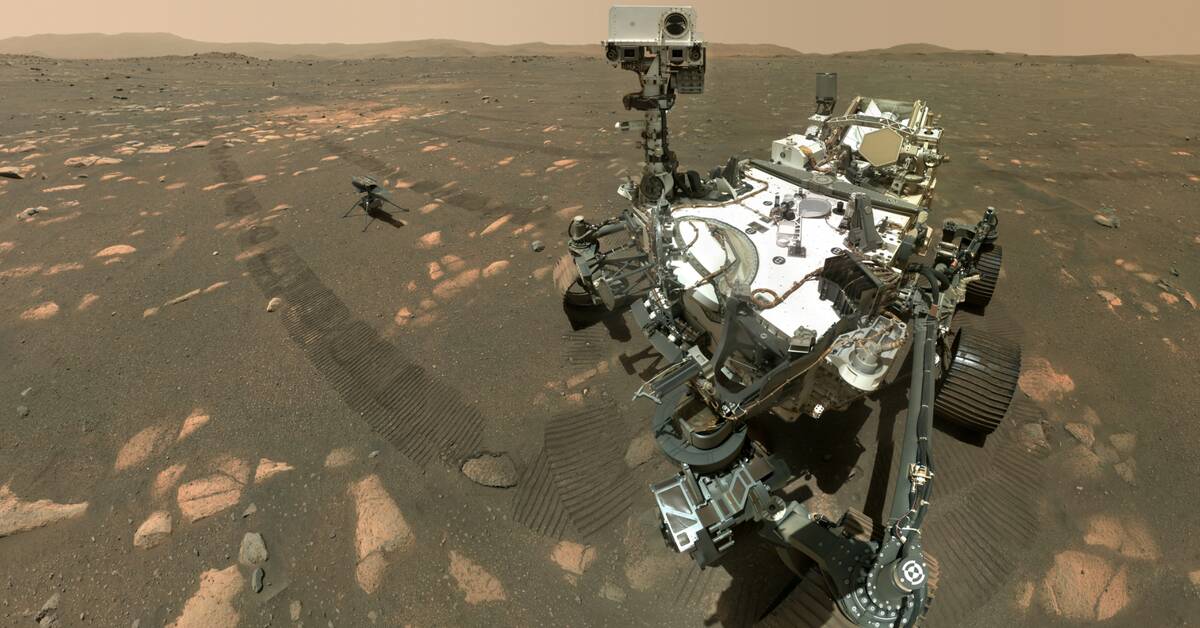NASA's Mars car Perseverance has with its microphones revealed several different sounds on the planet since it landed last year.
Mostly from himself and the helicopter Ingenuity, but also the occasional wind.
The recordings have surprised French researchers who analyzed the audio files.
It turned out that the sound first travels slower on Mars than on Earth.
But more surprising was that lower frequencies travel faster than higher frequencies.
- I panicked a little.
"I told myself that one of the two measurements must be wrong because we only have a speed for sound on earth," Sylvestre Maurice, an astronomer at the University of Toulouse III Paul Sabatier in France and lead author of the study, told AFP.
Different speeds, volume and attenuation
On Earth, sound travels on the surface at 340 meters per second, regardless of frequency.
But the sound recordings from Mars show that the sound travels at different speeds depending on its frequency.
The limit for the speed change went at 240 Hertz, roughly at note b, which is the second string from the bottom of a guitar.
Sounds with frequencies above 240 Hertz travel at about 250 meters per second on Mars.
Sounds with frequencies below 240 Hertz travel at about 240 meters per second, according to the new study in Nature.
It also turned out that sound on Mars has a lower sound volume, about 20 decibels weaker than on Earth.
The sound is also attenuated much faster, especially the higher frequencies.
This means that it would have been difficult to distinguish what is heard even at short distances from the sound source.
Carbon dioxide molecules vibrate differently
The reason why sound has other properties on Mars is that the atmosphere there consists almost exclusively of carbon dioxide, unlike the Earth's atmosphere with the most nitrogen and oxygen.
In addition, the air pressure is only one hundredth of the air pressure on Earth and it is much colder on the planet.
- These carbon dioxide molecules can vibrate and rotate in slightly different ways than oxygen and nitrogen here on earth.
It is a very different environment on Mars and from all these things you can understand that the sound will not be the same as on Earth, says Mats Holmström, associate professor and researcher at the Institute of Space Physics in Kiruna.
"Can hear how the rover is feeling"
The knowledge gained from the sounds on Mars can also teach us more about the atmosphere.
For a trained ear, it is possible to hear changes in air circulation in the atmosphere.
At night it is more stationary and during the day when warmer air rises there is greater circulation.
- It can help when you want to make models of the atmosphere and how it behaves on Mars.
Another application is that you can actually also hear how this rover is doing, if a ball bearing or an engine starts to malfunction, for example, says Mats Holmström.
He is looking forward to more exciting discoveries about the acoustics of Mars.
- This is the first time you have microphones on Mars and have been able to record sounds from the planet.
So there will surely be many more interesting discoveries in the future as well, says Mats Holmström.
Play the clip to hear a reconstruction of how music and speech would sound on Mars but also real sounds from the planet's surface.

